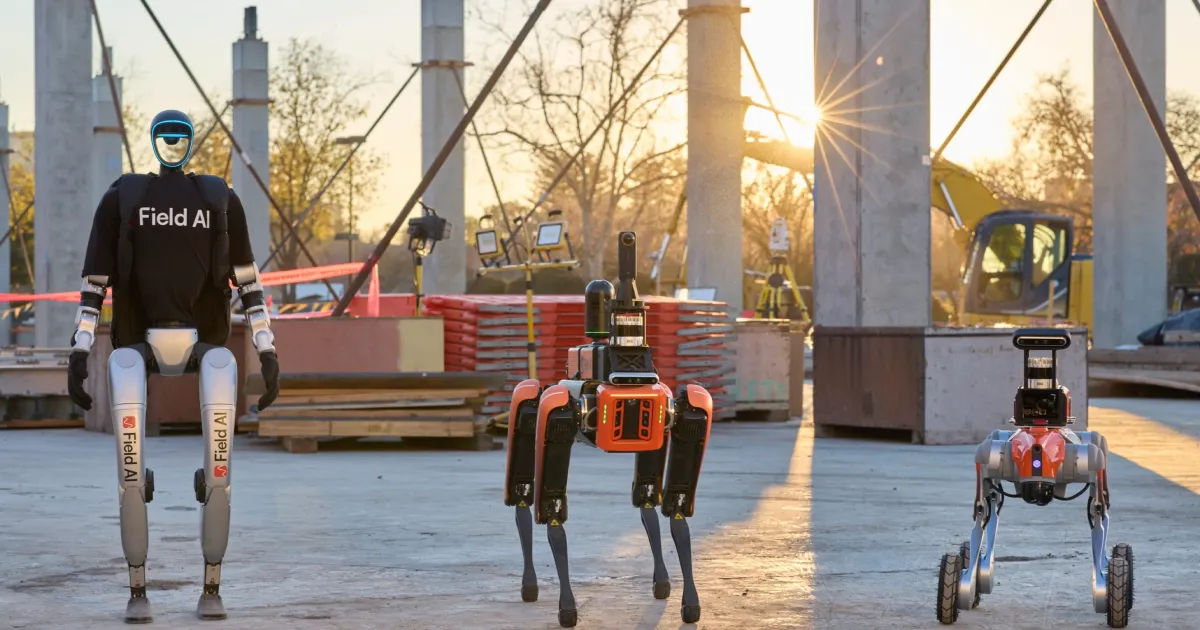FieldAI raises $405M to build robot brains

FieldAI, a stealthy robotics startup, has emerged with $405 million in funding across multiple previously undisclosed rounds to develop what it calls “foundational embodied AI models” — essentially universal robot brains designed to help humanoids, quadrupeds, self-driving cars, and other autonomous machines adapt safely to new environments.
The company revealed the funding on Wednesday, noting that its most recent round — a $314 million raise in August — was co-led by Bezos Expeditions, Prysm, and Temasek. Other investors include Khosla Ventures, Intel Capital, and Canaan Partners.
Embodied AI: A Different Kind of Intelligence
Unlike large language models that work with text or images, embodied AI refers to artificial intelligence that directly controls physical robots navigating the real world. FieldAI’s core innovation is its Field Foundation Models — general-purpose systems rooted in physics.
Founder and CEO Ali Agha, a veteran of NASA and MIT, told TechCrunch that this physics-driven approach allows robots to quickly adapt to unfamiliar environments while maintaining an awareness of safety and risk.
“The mission is to build a single robot brain that can generalize across different robot types and a diverse set of environments,” Agha explained. “Traditional approaches were never designed to manage risk and safety. That’s the fundamental gap we’re closing.”
Why Physics Matters
Agha argues that integrating physics into AI decision-making is key to reliable robotics. While a chatbot might get away with a small “hallucination,” a robot operating in a hazardous worksite or around people cannot.
With FieldAI’s models, robots can estimate their confidence level before acting. Customers can even define risk thresholds, enabling robots to adjust behavior accordingly.
“It’s not just spitting out the next action,” said Agha. “It’s about understanding how sure you are, and reacting to uncertainty in a way that keeps people safe.”
From Lab to Industry
Since its launch in 2023, FieldAI has already landed contracts across construction, energy, and urban delivery industries, though it has not yet disclosed specific clients. The new funding will fuel R&D, scale production, and expand internationally.
Agha likens FieldAI’s vision to human evolution: the ability to handle diverse tasks in unpredictable environments. “You can optimize for one specific use case, but that’s not the market we are going after,” he said.
Why It Matters
FieldAI’s ambition — to create a general-purpose robotic brain — echoes the broader AI industry’s push toward foundation models, but with a physical twist. If successful, the company could unlock a new generation of safer, more adaptable robots capable of operating everywhere from factories and construction sites to city streets.





